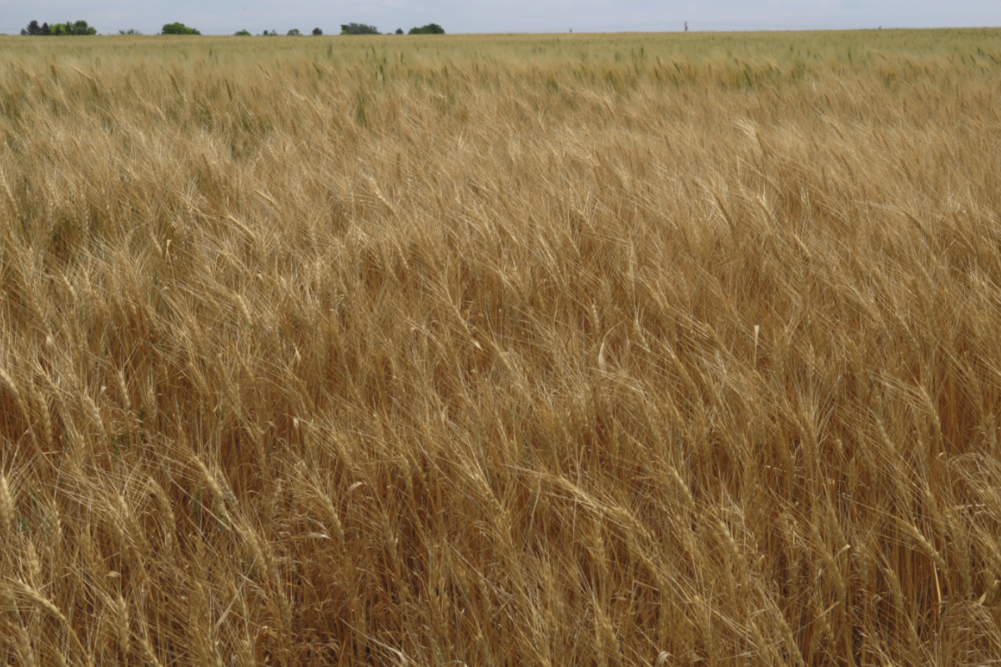MANHATTAN, KANSAS, US — Kansas State University (KSU) was chosen to lead efforts to improve US winter wheat varieties by the US Department of Agriculture’s National Institute for Food and Agriculture.
The university received $1 million to establish the International Wheat Yield Partnership’s (IWYP) Winter Wheat Breeding Innovation Hub. KSU will evaluate research findings from several IWYP projects that contribute to “significantly improved” wheat yields, according to officials.
Hub partners will work to combine desirable traits for winter wheat varieties such as genetic improvements that make winter wheat more resistant to pests, disease or drought to improve yield potential.
Eduard Akhunov, a KSU wheat geneticist and the project’s principal investigator, said that stacking desirable traits (called trait packages) in wheat varieties helps researchers, “deliver key yield traits to US growers as quickly as possible to reverse the declining trend of winter wheat acreage, and add significant economic value to the US and global wheat industries.”
“This partnership is established to maximize the value of research investments for the benefit of global agriculture by translating research findings into commercial breeding products,” he said.
According to KSU, it is estimated that the world’s wheat production must double by the year 2050 to meet the needs of a population expected to surpass 9 billion people.
“To fully implement these advances in breeding programs, we must put together a systematic effort to transfer traits to elite lines that are relevant to regional breeding programs,” he said. “Grain yields are critical for global food security. State wheat growers and commodity groups consider increasing grain yield at the farm level as one of the main priorities for the industry.”
Akhunov said members of the new hub will test findings from IWYP projects to build trait packages for higher-yielding winter wheat, which refers to varieties that are planted in the fall and harvested in late spring or early summer. Another IWYP Hub at the International Maize and Wheat Improvement Center (CIMMYT) in Mexico leads a project to translate research and validate improvements for spring wheat, or those varieties planted in the spring and harvested in the fall.
“The combined expertise, capabilities, infrastructure and germplasm to conduct this type of work already exists here,” Akhunov said, noting the university’s close work with the USDA’s Agricultural Research Service and the Kansas Wheat Innovation Center, both located in Manhattan, Kansas, US.
“This is an important time for wheat, and the timing of this project coincides perfectly with the investment Kansas farmers are making into wheat at the Kansas Wheat Innovation Center and KSU,” said Justin Gilpin, chief executive officer with Kansas Wheat.
KSU’s Wheat Genetics Resources Center and Integrated Genomics Facility, and the ARS’s Hard Red Winter Wheat Quality Lab and Hard Winter Wheat Genotyping Lab, are among the partners that make this work possible in Manhattan, Akhunov said.
“These partnerships allow for rapid, genomics-assisted trait transfer and stacking in elite germplasm using high-throughput diagnostic and genome-wide markers, speed breeding and field-based trait evaluation,” Akhunov said.
The hub is a public-private partnership between national and international wheat breeding programs, government organizations and industry.
The new IWYP Hub includes many other public and private partners, including the Kansas Wheat Commission, the Kansas Department of Agriculture, the Kansas Wheat Alliance, Heartland Plant Innovations, the Colorado Wheat Administrative Committee, the Nebraska Wheat Board, the Oklahoma Wheat Commission, the Texas Wheat Producers Board, the National Association of Wheat Growers, BASF, Syngenta, Corteva Agriscience, KWS, Limagrain and representatives of the US winter wheat public-breeding programs.
Some of the public and private partners also are providing contributions beyond the $1 million KSU has received from NIFA.
In addition to Akhunov, the co-principal investigators for the project include KSU faculty members Allan Fritz; Jessica Rupp; Romulo Lollato and Jesse Poland; Mary Guttieri, ARS research geneticist; and Jeff Gwyn, IWYP program director, who is at Texas A&M AgriLife.
“Collaborations of public and private expertise and resources are what it will take to get wheat genetics to the next level,” Gilpin said. “Having the hub of this initiative centrally located in Manhattan with the involvement of wheat growers, university and USDA scientists, and wheat breeders is exciting to see for the wheat industry.”






